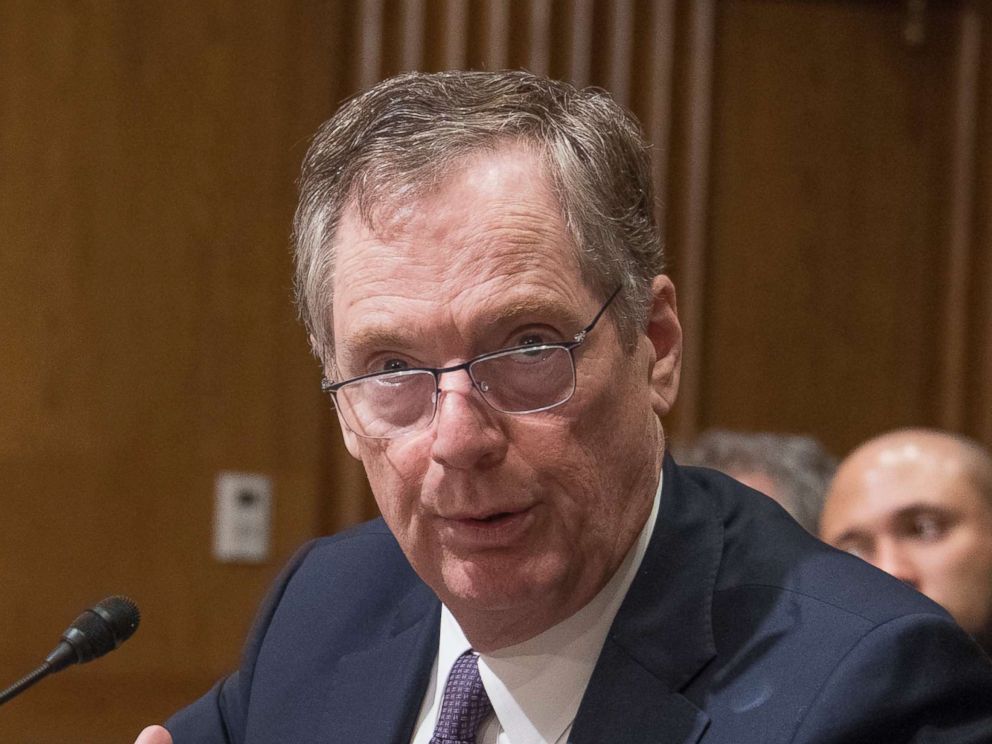Trump administration claims win in trade negotiations with South Korea
Deal marks first successful renegotiation since tariffs were announced.
The Trump administration is claiming the U.S. has successfully renegotiated its trade dealings with South Korea, in what would mark the first major trade deal since President Donald Trump announced hardline blanket tariffs last month.
Senior administration officials, speaking to reporters Tuesday evening, called it a “very big deal in the history of U.S. trade negotiations.”
Last month, Trump announced that the United States would be imposing a 25 percent blanket tariff on steel imports and a 10 percent tariff on aluminum imports, but left open a window of time during which some allied nations would have the opportunity to renegotiate trade arrangements.
Economists and politicians on both sides of the aisle slammed the announced tariffs last month, fearing that blanket tariffs could ignite a trade war between the United States and some European and Asian allies. Then last week, Trump announced his plans to ramp up tariffs on China, placing tariffs on up to $60 billion worth of Chinese imports annually and calling it “the first of many.”
China responded by suggesting that it would implement tariffs on U.S. goods including apples, steel pipe, and pork. Fears of an impending trade war caused the markets to tumble, but they have since re-stabilized as the hope of a compromise with China has grown.
During the Tuesday evening call, senior administration officials nodded to the success of the tariffs as a leveraging tool in renegotiations with South Korea.
When asked on CNBC Wednesday morning whether the hardline trade approach taken by the U.S. toward China could yield positive trade agreements similar to those in the Korea deal, U.S. Trade Representative Robert Lighthizer expressed optimism.
“I think there is hope,” Lighthizer, who played a key role in the renegotiations, said. “We have two very different systems, we have one that’s state capitalism and one that is market economy driven. There’s going to be a certain amount of tension between the two, but I think it’s very possible that we could end up over many years and over a series of difficulties working our way to a good place.”
Amid the heightened trade tensions between the U.S. and China, Kim Jong Un traveled to China on Tuesday to meet with Chinese officials during what was his first foreign trip while in power.

Other U.S. allies, like Canada and Mexico Brazil, Argentina and European Union, have been temporarily exempted from the steel and aluminum tariffs to allow for ongoing renegotiations of their current trade agreements with the US. Members of the EU have criticized the hard-line approach from the U.S., but Trump has not signaled any intention to back down.
Under the agreement in principle announced Tuesday, South Korea will be exempt from the 25 percent steel tariff in exchange for agreeing to cut the amount of steel it sends to the United States by about 30 percent. South Korea will still be subject to the 10 percent aluminum tariffs.
The new agreement also lays out several provisions aimed at giving American-made vehicles a competitive advantage in the Korean market. The 25 percent tariffs that the U.S. places on Korean-made pickup trucks will be extended through 2041. Caps have been doubled on the number of U.S. vehicles that meet U.S. safety standards that can be exported to Korea, and some regulatory barriers on emissions and repair have been lowered.
The trade renegotiation between the U.S. and South Korea occurs as the United States turns its attention to the Korean peninsula. The Trump administration is gearing up for diplomatic talks with North Korean leader Kim Jong-un, set to occur sometime in May.

Vice President Mike Pence speaking to a crowd in Minnesota Wednesday said the new deal would “put American jobs and American workers first.”
Other key Republicans also voiced their support. The House Ways and Means Committee chair said in a statement released Wednesday that the trade deal would “will be beneficial to American consumers, workers, and manufacturers.”
“Today’s announcement demonstrates the Administration’s commitment to strengthening our relationship with Korea,” said Rep. Kevin Brady, R-Texas, “And increasing our competitiveness in the Asia-Pacific region.”
Decreasing the national trade deficit has been a priority of Trump’s since the campaign. His campaign promises hinged on trade renegotiations that favored American products and workers.
Senior administration officials touted the South Korean deal as the first major example of successful movement toward that campaign promise.




